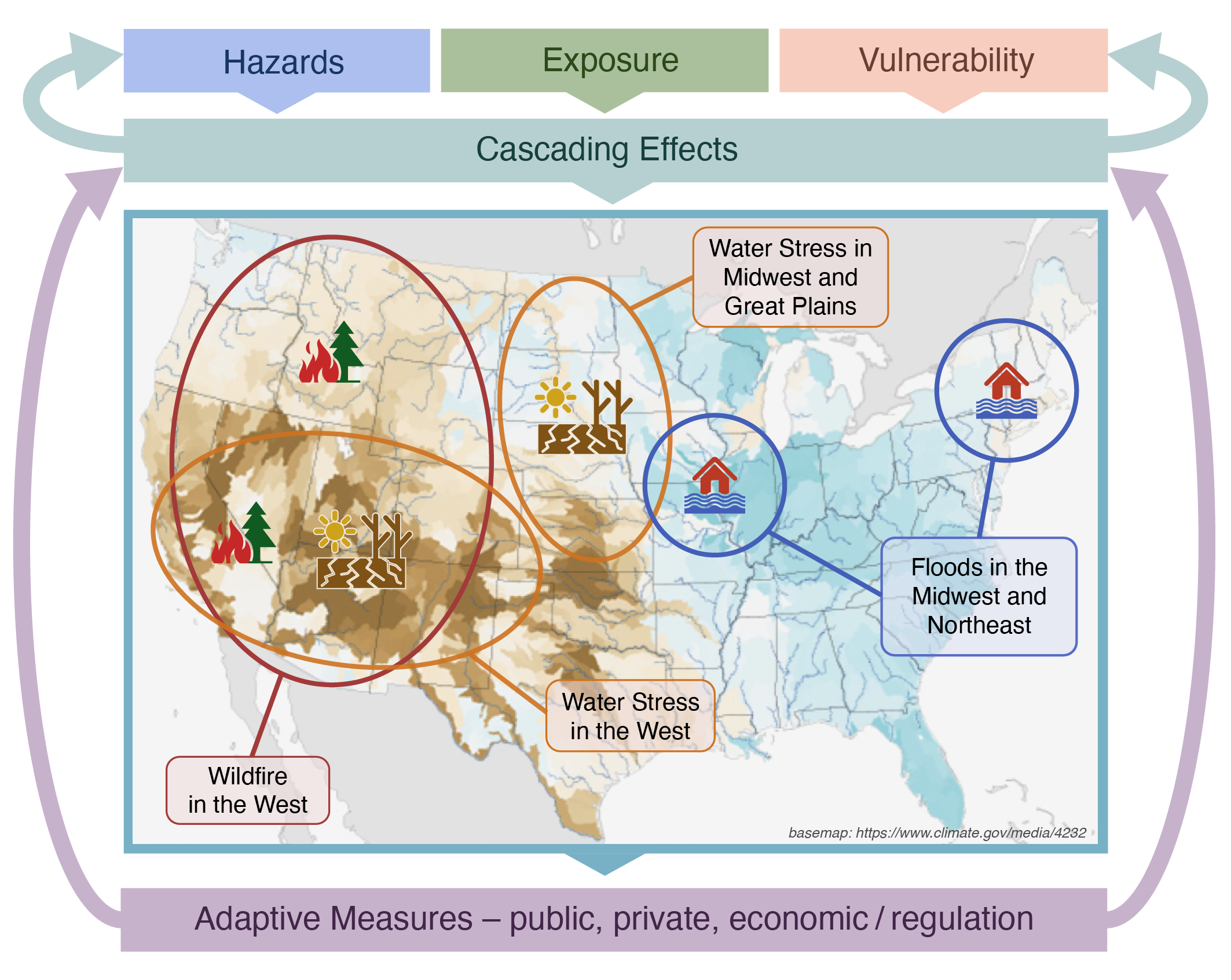PCHES-ADAPT
award: DOE Cooperative Agreement DE-SC0022141
active: October 2021 – present
principal investigator: Karen Fisher-Vanden (Penn State)
Understanding risk and response behaviors within the context of landscape evolution, interconnected infrastructures, and the resilience of complex systems poses a major challenge in the emerging field of MultiSector Dynamics (MSD). Identifying, modeling, and analyzing the multiscale, multisystem response options and cross-system implications requires not only an understanding of multisector teleconnections in the coupled human and Earth system, but also how interconnected systems are exposed to hazards that create vulnerabilities and risks for society and how societies respond and adapt to these risks. To address this challenge, the PCHES team launched a new project in 2021 funded by the MultiSector Dynamics program within the U.S. Department of Energy’s Office of Science that seeks to answer three new, critical, and interrelated research questions:
- How can we characterize and quantify the propagation of hazards (flood, water scarcity, wildfire) through the MSD system, affecting the exposure and vulnerability of populations and human built systems to these hazards?
- How do these populations and physical systems respond to these risks and how do those responses feed back to the MSD system as part of a fully coupled, co-evolutionary human and natural Earth system?
- What are the features and characteristics that fundamentally give rise to resilient response strategies of populations and physical systems?
PCHES-ADAPT will utilize and extend previously-developed MSD frameworks (PCHES-FRAME) with new work aimed at understanding how populations and physical systems respond to hazards in conjunction with the quantification and characterization of hazards. A particular focus is to identify, characterize, and compare risk management strategies and adaptive measures and their implications for systems resilience. Variation across case studies is key to identifying these characteristics. Therefore, the team will (i) vary hazards within a region to identify interplay between hazards and (ii) vary regions for a specific hazard to identify regional differences in impacts and responses to a specific hazard. This will allow the team to understand and model how strategies differ depending on the type of hazard and region under consideration.

The work of PCHES-ADAPT focuses on two regional case studies – water stress and wildfires in the US West, and water stress and flooding in the Great Plains and Upper Midwest – that will form the basis of three intercomparison exercises. The first is an intercomparison of water stress responses and implications in the West and Great Plains. The second is an intercomparison of flooding responses and implications in the Upper Midwest and East Coast. Lastly, the team will also conduct a method intercomparison of uncertainty characterization and quantification (UC/UQ) techniques to test how generalizable the chosen UC/UQ methodological approach is to alternative modeling frameworks and applications. The case studies and intercomparisons are expected to drive innovations in the application of hazard characterization, machine learning (ML), emulation, risk identification, and end-to-end UC/UQ to coupled multisector, multiscale modeling systems that can be shared with the broader group of experts and users in MSD.
The proposed research design will allow alternative, iterative approaches to these critical analytical challenges to be compared and contrasted within a “test-bed” like environment rather than seeking to identify a single dominant consensus modeling framework. This research strategy should enable the team to achieve its research objectives while also providing large synergistic benefits to other MSD research teams and the wider field of research.
